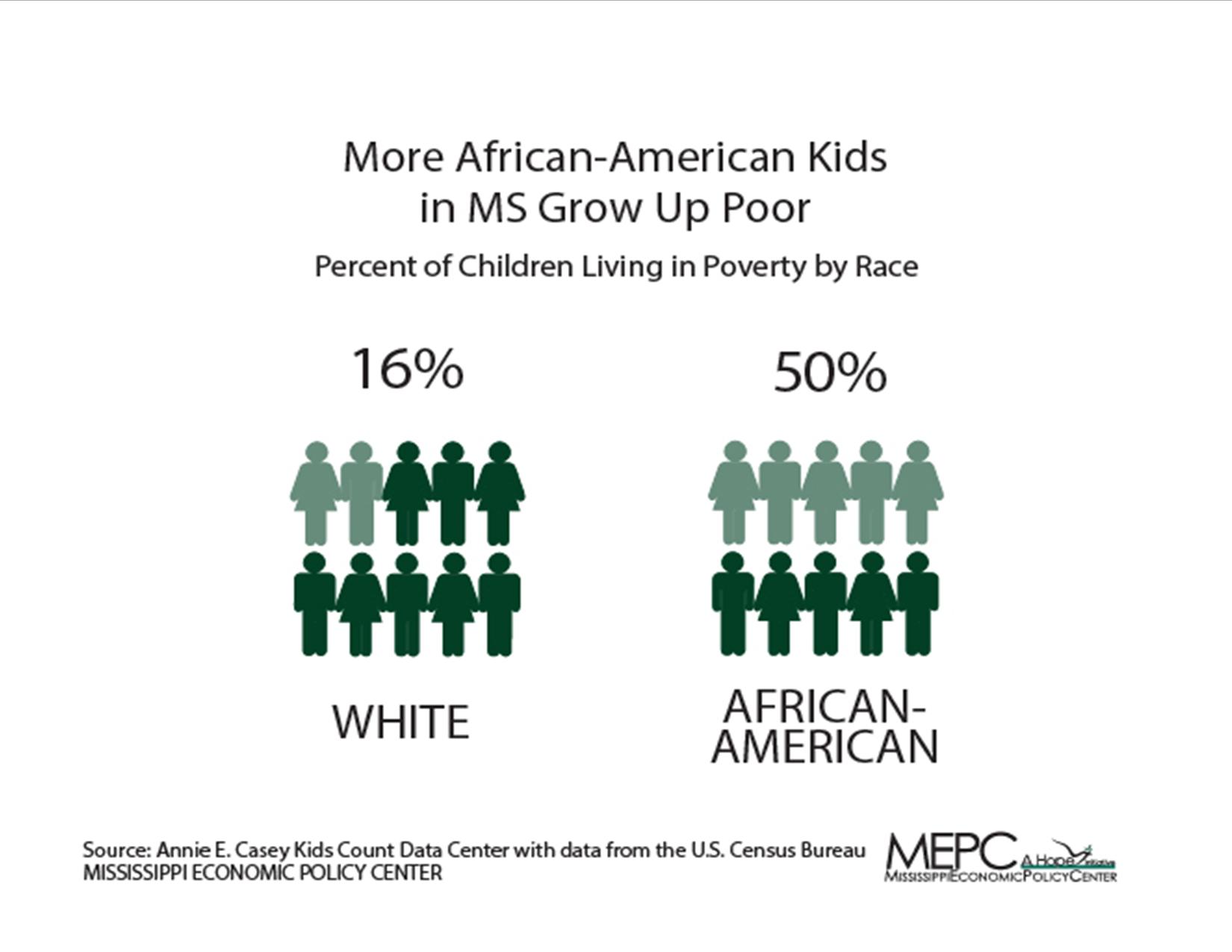The graphic illustrates the vast disparity in child poverty by race.
While 16% of white children are in poverty, one out of two African American children suffers that plight. Collectively, one-third of Mississippi’s children are poor. These children face far more obstacles to achieving prosperity than children who don’t live in poverty. Children who grow up poor are more likely to become adults who are poor, need public assistance at some point and become incarcerated. They are less likely to graduate from high school, go to college and move into good-paying jobs than other children.
Only two other states, Ohio and Michigan, have child poverty rates for African Americans that reach 50%. What separates Mississippi from them is that 43% of Mississippi’s total child population is African American.
Beyond the individual challenges of poverty, it limits the economic potential of our entire state and nation. Unless Mississippi makes the investments necessary to lift families and individuals out of poverty — fully funding public education, keeping community colleges and universities affordable and making sure more people have health insurance — our future is bleak.
Far too often, the refrain “we can’t afford it” stands in the way of progress. Given the challenges the state faces today and the prospects for its future, we must take a much more balanced approach that includes raising revenue to make the types of investments that will create real economic opportunity for all Mississippians.







